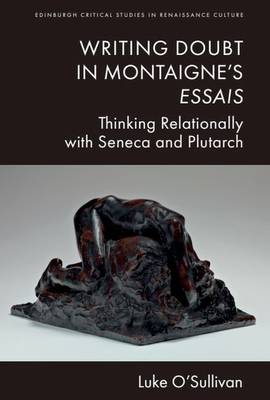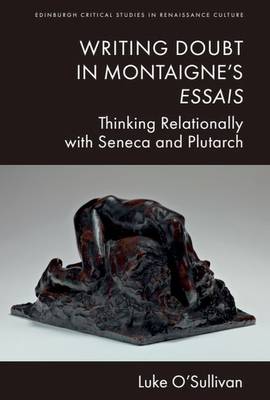
- Retrait gratuit dans votre magasin Club
- 7.000.000 titres dans notre catalogue
- Payer en toute sécurité
- Toujours un magasin près de chez vous
- Retrait gratuit dans votre magasin Club
- 7.000.0000 titres dans notre catalogue
- Payer en toute sécurité
- Toujours un magasin près de chez vous
Description
Doubtful Writing offers a major reassessment of philosophical uncertainty in one of the early modern period's foremost doubters. It argues that Montaigne's engagement, his endless 'commerce' with two dogmatists, Seneca and Plutarch, produced a radical new mode of doubtful writing; one with which Montaigne could conduct and communicate a double, unresolved, and contradictory mode of thinking.
Seneca and Plutarch have long been recognised as Montaigne's preferred authors: he himself, on numerous occasions, holds them up as authors of the books he could not be without and their influence on his informal, fragmentary style is widely acknowledged. But these authors have, until now, escaped significant attention from the perspective of philosophical uncertainty. Doubtful Writing argues that it was with these authors - dogmatists who nevertheless practised a 'doubtful and unresolved way of writing' - that Montaigne developed his own manière de dire ('way of saying'). Reading Montaigne through this lens offers a valuable new perspective on doubt in the Essais and in the early modern period more broadly, understanding doubt not only as a philosophical system or set of arguments but as a practice of thinking in and with writing.
Spécifications
Parties prenantes
- Auteur(s) :
- Editeur:
Contenu
- Nombre de pages :
- 256
- Langue:
- Anglais
- Collection :
Caractéristiques
- EAN:
- 9781399522960
- Date de parution :
- 31-08-24
- Format:
- Livre relié
- Format numérique:
- Genaaid
- Dimensions :
- 156 mm x 234 mm
- Poids :
- 539 g

Les avis
Nous publions uniquement les avis qui respectent les conditions requises. Consultez nos conditions pour les avis.






